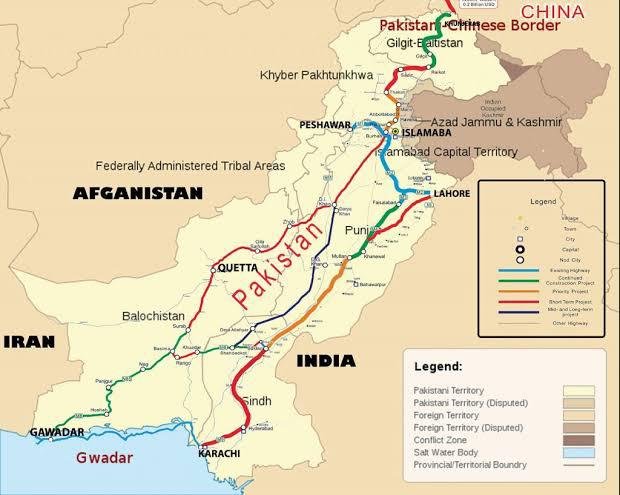India continues to face significant challenges in its efforts to reclaim Pakistan-occupied Kashmir (PoK), a region at the heart of a long-standing territorial dispute with Pakistan. The situation has been further complicated by the China-Pakistan Economic Corridor (CPEC).

CHINA-PAKISTAN ECONOMIC CORRIDOR: India
The China-Pakistan Economic Corridor (CPEC) is a flagship project of China’s Belt and Road Initiative (BRI). It aims to enhance connectivity and cooperation between China.This is to be achieved by linking Gwadar Port in Pakistan’s Balochistan province to China’s Xinjiang region through a network of highways, railways, and pipelines. Importantly, this corridor passes through the region of Gilgit-Baltistan, which is part of the larger disputed territory of Jammu and Kashmir, claimed by both India and Pakistan.
India refers to Gilgit-Baltistan as part of Pakistan-occupied Kashmir (PoK) and considers it an integral part of its territory. Consequently, strong objections to the project have been voiced by India due to the passage of CPEC through this region. It is argued by the Indian government that the construction of infrastructure in this disputed territory violates India’s sovereignty.
Strategic Implications
Firstly, India’s objections to the corridor passing through PoK are rooted in its long-standing territorial dispute with Pakistan. An increase in China’s strategic footprint in the region is perceived by India as a challenge to its influence and security.
Furthermore, the involvement of China in CPEC makes any conflict in the region more complex. If India were to initiate military action against PoK, it could potentially escalate into a broader conflict involving China, given China’s substantial investments and strategic interests in the region. The issue is further complicated by China’s consistent support for Pakistan’s stance on Kashmir.
Conclusion
The CPEC route through PoK represents a significant flashpoint in the already volatile relationship between India and Pakistan, with China as a key stakeholder. While diplomatic and economic strategies remain viable options for managing tensions, the risk of military escalation cannot be entirely ruled out. Any conflict in this region would have profound implications, underscoring the need for careful navigation of this complex geopolitical landscape by all involved parties.

